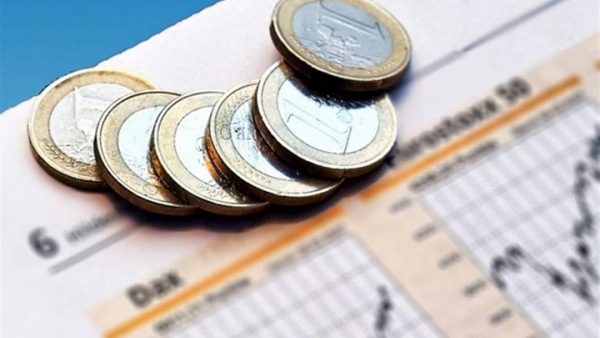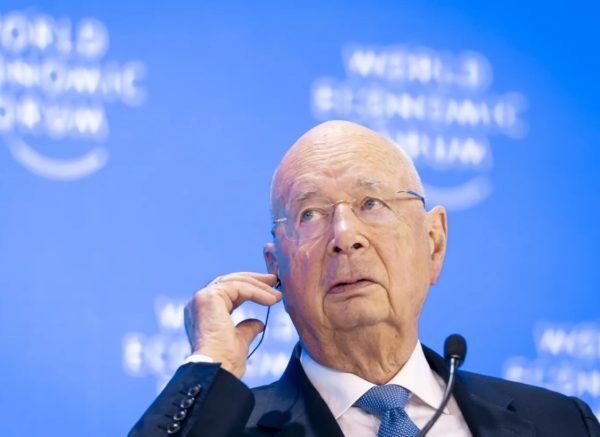
The particularly high prices of natural gas and, by extension, electricity, which prevailed throughout 2022, had a serious impact on the entire economy (domestic and non-domestic), as the gradual jump in energy costs to historically high levels directly affected the industrial production, the rest of the businesses and household consumptions, while it also reached the final consumer by passing on costs throughout the supply chain.
This is pointed out, among other things, by the new Special Report of the Energy Institute of South-East Europe (IENE), while it briefly mentions the prospects of the sector for 2023. The report focuses on the main restructurings that have occurred in the energy market and the reasons behind them – such as the Russian invasion of Ukraine, while characterizing 2022 as a year “very different from the previous years due to extremely high prices in almost all energy products”.
Unprecedented energy prices and subsidies
As highlighted in the Report, high electricity and natural gas prices led to unprecedented energy prices and subsequently to energy subsidies (€8.2 billion in the last 18 months). Due to the rise in the prices of basic goods and services, there were increases in key economic figures that risked derailing the budget.
Nevertheless, the Greek economy recorded solid growth in the first half of 2022 – with rising inflation, however, affecting growth in the second half of the previous year. In 2022 as a whole, average annual inflation was recorded at 9.6%, the highest level since 1994.
The war in Ukraine and its immediate impact on security of supply and prices for natural gas, electricity and oil was arguably the central event of 2022 in the energy sector. There were, however, other developments in the past year which left a strong impression and affected consumers and entrepreneurs in the energy sector.
The most important developments of 2022
These developments for 2022 are summarized as follows:
• The war in Ukraine contributed significantly to the rapid increase in energy prices, which had already started their upward trend from the summer of 2021. A jump in the average TEA and a decrease in electricity demand were observed.
• Lignite returned dynamically to the country’s energy balance.
• 2022 was a record year for the installation of RES units, as 1,700 MW of new installed capacity was added.
• However, serious weaknesses were found in the electrical distribution network, resulting in cuts in the injection of energy from RES for the first time.
• Greece recorded massive electricity imports, higher than ever before.
• Greece, for the first time, became an exporter of natural gas to countries further north and strengthened its influence in SE Europe.
• Despite the obvious need to strengthen the energy mix with conventional sources used by the majority of consumers, there is no coordinated policy from the new ESEK, as it deals exclusively with RES and hydrogen.
Challenges
Among the existing challenges that stand out are the need for coordination between a more “tight” monetary policy and targeted fiscal support measures, the risk that the economic slowdown will last, as well as the energy crisis gaining new intensity in the second half of 2023.
Finally, it is noted that the high volatility in energy prices causes increased uncertainty for businesses and households, while an escalation of the so-called “imported” inflation is not excluded, mainly due to the high prices of energy goods, with the deflation indices of imports and exports exceeding significantly the respective indicators of consumption and fixed capital investments.
Latest News

IMF: US Tariffs Shake Global Economy, Outlook Downbeat
IMF slashes global growth forecast to 2.8% as U.S. tariffs create uncertainty and ‘negative supply shock

First Step Towards New Audiovisual Industry Hub in Drama
The project is set to contribute to the further development of Greece’s film industry and establish Drama as an audiovisual hub in the region

Airbnb Greece – Initial CoS Ruling Deems Tax Circular Unlawful
The case reached the Council of State following annulment applications filed by the Panhellenic Federation of Property Owners (POMIDA)

Mitsotakis Unveils €1 Billion Plan for Housing, Pensioners, Public investments
Greek Prime Minister Kyriakos Mitsotakis has announced a new set of economic support measures, worth 1 billion euros, aiming to provide financial relief to citizens.

Alter Ego Ventures Invests in Pioneering Gaming Company ‘Couch Heroes’
Alter Ego Ventures' participation in the share capital of Couch Heroes marks yet another investment by the Alter Ego Media Group in innovative companies with a focus on technology.

Corruption Still Plagues Greece’s Driving Tests
While traffic accidents continue to claim lives on Greek roads daily, irregularities and under-the-table dealings in the training and testing of new drivers remain disturbingly widespread

Pope Francis Died of Stroke and Heart Failure Vatican Confirms
As news of the official cause of death spread, tributes poured in from across the globe. The 1.4 billion-member Catholic Church is united in grief, remembering a pope who championed inclusion, justice, and compassion

Increase in Both Museum Visits, Revenues for 2024
As expected, the Acropolis was the top archeological site in the country, followed by Sounion, Mycenae, the ancient theater of Epidaurus, and Vergina in northern Greece

Where Greece’s Tourists Come From: A Look at 2025’s Top Visitor Markets
The United Kingdom continues to hold the top spot as the largest source of incoming tourism, with 5.6 million seats booked for Greece this summer — up 2.2% from last year. This accounts for 20% of all international air traffic to Greece

Pope Francis: A Pontiff Who Reshaped the Papacy and Sparked a Global Conversation
His first words from the balcony of St. Peter’s Basilica—“Brothers and sisters, good evening”—set the tone for a pontificate that would challenge norms, favor mercy over dogma, and bring the papacy closer to the people.












![Πλημμύρες: Σημειώθηκαν σε επίπεδα ρεκόρ στην Ευρώπη το 2024 [γράφημα]](https://www.ot.gr/wp-content/uploads/2025/04/FLOOD_HUNGRY-90x90.jpg)



![Ξενοδοχεία: Μεγάλο το ενδιαφέρον για επενδύσεις στην Ελλάδα – Η θέση της Αθήνας [γραφήματα]](https://www.ot.gr/wp-content/uploads/2025/03/Athens-hotels-90x90.jpg)
























 Αριθμός Πιστοποίησης
Αριθμός Πιστοποίησης